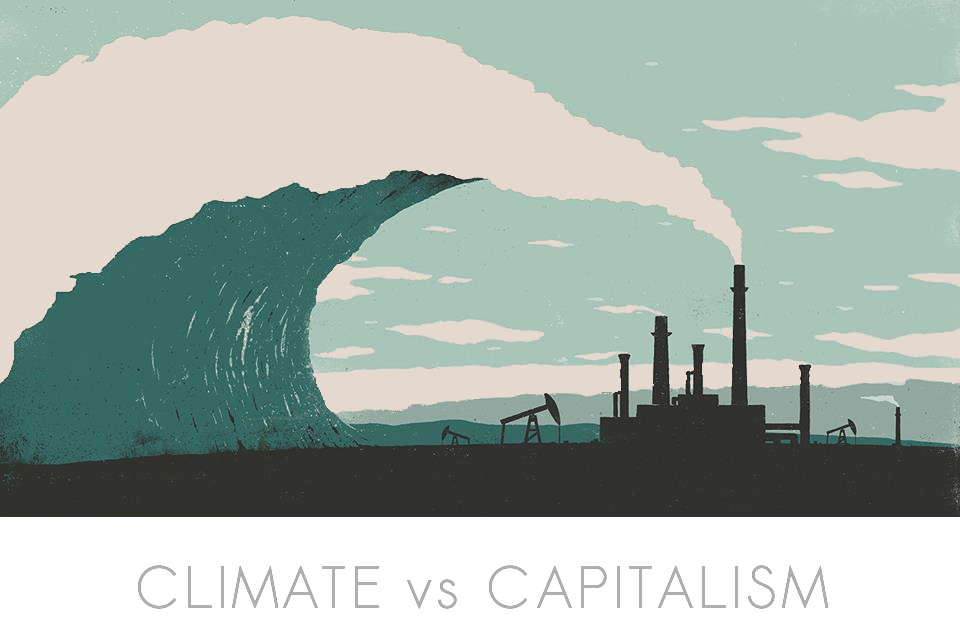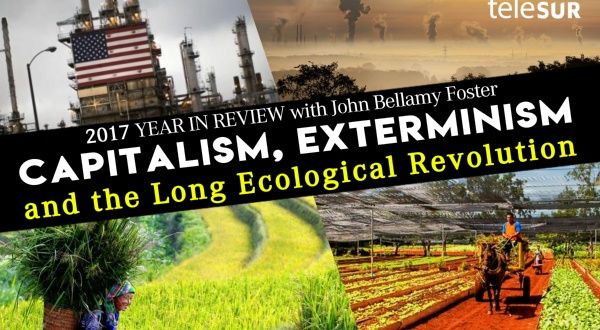
We’re Running Out of Time’
Rep. Barbara Lee / US House of Representatives
WASHINGTON, DC (June 5, 2019) — We’re running out of time to solve the existential threat of climate change. It’s a sobering thought and a little “doomsday,” I know, but we must get serious about the impacts climate change already has and will continue to have on our environment, economy, and world.
Take a look at these headlines:
• “New Report Suggests ‘High Likelihood of Human Civilization Coming to an End’ Starting in 2050” — Vice
• “Report: we have just 12 years to limit devastating global warming” — Vox
• “The Trump administration takes climate denial to new heights” — Washington Post
And then there is…
• “Freedom Gas: The Trump Administration’s Ridiculous New Plan to Rebrand Fossil Fuels” — Mother Jones
Trump’s propaganda machine has gone full swing, blatantly lying about dangerous fossil fuels and billing them as “molecules of U.S. freedom” to shore up his base.
Is this a joke?
Every day a new report warns how serious climate change is. Still, the Trump administration is full of climate deniers pushing their anti-environment agenda. There is no other way to say it: our planet is dying and we will suffer unless we act now.

New Report Suggests ‘High Likelihood of Human Civilization Coming to an End’ Starting in 2050
Nafeez Ahmed / VICE
The climate change analysis was written by a former fossil fuel executive and backed by the former chief of Australia’s military.
(June 3 2019) — A harrowing scenario analysis of how human civilization might collapse in coming decades due to climate change has been endorsed by a former Australian defense chief and senior royal navy commander.
The analysis, published by the Breakthrough National Centre for Climate Restoration, a think-tank in Melbourne, Australia, describes climate change as “a near- to mid-term existential threat to human civilization” and sets out a plausible scenario of where business-as-usual could lead over the next 30 years.
The paper argues that the potentially “extremely serious outcomes” of climate-related security threats are often far more probable than conventionally assumed, but almost impossible to quantify because they “fall outside the human experience of the last thousand years.”
On our current trajectory, the report warns, “planetary and human systems [are] reaching a ‘point of no return’ by mid-century, in which the prospect of a largely uninhabitable Earth leads to the breakdown of nations and the international order.”
The only way to avoid the risks of this scenario is what the report describes as “akin in scale to the World War II emergency mobilization”—but this time focused on rapidly building out a zero-emissions industrial system to set in train the restoration of a safe climate.
The scenario warns that our current trajectory will likely lock in at least 3 degrees Celsius (C) of global heating, which in turn could trigger further amplifying feedbacks unleashing further warming. This would drive the accelerating collapse of key ecosystems “including coral reef systems, the Amazon rainforest and in the Arctic.”
The results would be devastating. Some one billion people would be forced to attempt to relocate from unlivable conditions, and two billion would face scarcity of water supplies. Agriculture would collapse in the sub-tropics, and food production would suffer dramatically worldwide. The internal cohesion of nation-states like the US and China would unravel.
“Even for 2°C of warming, more than a billion people may need to be relocated and in high-end scenarios, the scale of destruction is beyond our capacity to model with a high likelihood of human civilization coming to an end,” the report notes.
The new policy briefing is written by David Spratt, Breakthrough’s research director and Ian Dunlop, a former senior executive of Royal Dutch Shell who previously chaired the Australian Coal Association.
In the briefing’s foreword, retired Admiral Chris Barrie—Chief of the Australian Defence Force from 1998 to 2002 and former Deputy Chief of the Australian Navy—commends the paper for laying “bare the unvarnished truth about the desperate situation humans, and our planet, are in, painting a disturbing picture of the real possibility that human life on Earth may be on the way to extinction, in the most horrible way.”
Barrie now works for the Climate Change Institute at Australian National University, Canberra.
Spratt told Motherboard that a key reason the risks are not understood is that “much knowledge produced for policymakers is too conservative. Because the risks are now existential, a new approach to climate and security risk assessment is required using scenario analysis.”
Last October, Motherboard reported on scientific evidence that the UN’s summary report for government policymakers on climate change—whose findings were widely recognized as “devastating”—were in fact too optimistic.
While the Breakthrough scenario sets out some of the more ‘high end’ risk possibilities, it is often not possible to meaningfully quantify their probabilities. As a result, the authors emphasize that conventional risk approaches tend to downplay worst-case scenarios despite their plausibility.
Spratt and Dunlop’s 2050 scenario illustrates how easy it could be to end up in an accelerating runaway climate scenario, which would lead to a largely uninhabitable planet within just a few decades.
“A high-end 2050 scenario finds a world in social breakdown and outright chaos,” said Spratt. “But a short window of opportunity exists for an emergency, global mobilization of resources, in which the logistical and planning experiences of the national security sector could play a valuable role.”

Scientists Warn the UN of Capitalism’s Imminent Demise
Nafeez Ahmed / VICE
Economies have used up the capacity of planetary ecosystems to handle the waste generated by energy and material use. A climate change-fueled switch away from fossil fuels means the worldwide economy will fundamentally need to change.
(August 27 2018) — Capitalism as we know it is over. So suggests a new report commissioned by a group of scientists appointed by the UN Secretary-General. The main reason? We’re transitioning rapidly to a radically different global economy, due to our increasingly unsustainable exploitation of the planet’s environmental resources.
Climate change and species extinctions are accelerating even as societies are experiencing rising inequality, unemployment, slow economic growth, rising debt levels, and impotent governments. Contrary to the way policymakers usually think about these problems, the new report says that these are not really separate crises at all.
Rather, these crises are part of the same fundamental transition to a new era characterized by inefficient fossil fuel production and the escalating costs of climate change. Conventional capitalist economic thinking can no longer explain, predict, or solve the workings of the global economy in this new age, the paper says.
Energy Shift
Those are the stark implications of a new scientific background paper prepared by a team of Finnish biophysicists. The team from the BIOS Research Unit in Finland were asked to provide research that would feed into the drafting of the UN Global Sustainable Development Report (GSDR), which will be released in 2019.
For the “first time in human history,” the paper says, capitalist economies are “shifting to energy sources that are less energy efficient.” This applies to all forms of energy. Producing usable energy (“exergy”) to keep powering “both basic and non-basic human activities” in industrial civilisation “will require more, not less, effort.”
The amount of energy we can extract, compared to the energy we are using to extract it, is decreasing “across the spectrum—unconventional oils, nuclear and renewables return less energy in generation than conventional oils, whose production has peaked—and societies need to abandon fossil fuels because of their impact on the climate,” the paper states.
The shift to renewables might help solve the climate challenge, but for the foreseeable future will not generate the same levels of energy as cheap, conventional oil.
In the meantime, our hunger for energy is driving what the paper refers to as “sink costs.” The greater our energy and material use, the more waste we generate, and so the greater the environmental costs. Though they can be ignored for a while, eventually those environmental costs translate directly into economic costs as it becomes more difficult to ignore their impacts on our societies.
And the biggest “sink cost,” of course, is climate change:
“Sink costs are also rising; economies have used up the capacity of planetary ecosystems to handle the waste generated by energy and material use. Climate change is the most pronounced sink cost,” the paper states.
The paper’s lead author, Dr. Paavo Järvensivu, is a “biophysical economist”—an emerging type of economist exploring the role of energy and materials in fuelling economic activity.
The BIOS paper suggests that much of the political and economic volatility we have seen in recent years has a root cause in ecological crisis. As the ecological and economic costs of industrial overconsumption continue to rise, the constant economic growth we have become accustomed to is now in jeopardy. That, in turn, has exerted massive strain on our politics.
But the underlying issues are still unacknowledged and unrecognised by most policymakers.
“We live in an era of turmoil and profound change in the energetic and material underpinnings of economies. The era of cheap energy is coming to an end,” the paper says.

Conventional economic models, the Finnish scientists note, “almost completely disregard the energetic and material dimensions of the economy.”
“More expensive energy doesn’t necessarily lead to economic collapse,” Järvensivu told me. “Of course, people won’t have the same consumption opportunities, there’s not enough cheap energy available for that, but they are not automatically led to unemployment and misery either.”
The scientists refer to the pioneering work of systems ecologist Professor Charles Hall of the State University of New York with economist Professor Kent Klitgaard from Wells College. Earlier this year, Hall and Klitgaard released an updated edition of their seminal book, Energy and the Wealth of Nations: An Introduction to BioPhysical Economics.
Hall and Klitgaard are highly critical of mainstream capitalist economic theory, which they say has become divorced from some of the most fundamental principles of science. They refer to the concept of ‘Energy Return on Investment’ (EROI) as a key indicator of the shift into a new age of difficult energy. EROI is a simple ratio that measures how much energy we use to extract more energy.
“For the last century, all we had to do was to pump more and more oil out of the ground,” say Hall and Klitgaard. Decades ago, fossil fuels had very high EROI values—a little bit of energy allowed us to extract large amounts of oil, gas and coal.
But as I’ve previously reported for Motherboard, this is no longer the case. Now we’re using more and more energy to extract smaller quantities of fossil fuels. Which means higher production costs to produce what we need to keep the economy rolling. The stuff is still there in the ground—billions of barrels worth to be sure, easily enough to fry the climate several times over.
But it’s harder and more expensive to get out. And the environmental costs of doing so are rising dramatically, as we’ve caught a glimpse of with this summer’s global heatwave.
These costs are not recognised by capitalist markets. They literally cannot be seen by prevailing economic models.
Earlier in August, billionaire investor Jeremy Grantham—who has a track record of consistently calling financial bubbles—released an update to his April 2013 analysis, ‘The Race of Our Lives.’
The new paper, ‘The Race of Our Lives Revisited,’ provides a bruising indictment of contemporary capitalism’s complicity in the ecological crisis. Grantham’s verdict is that “capitalism and mainstream economics simply cannot deal with these problems,” namely, the systematic depletion of planetary ecosystems and environmental resources:
“The replacement cost of the copper, phosphate, oil, and soil—and so on—that we use is not even considered. If it were, it’s likely that the last 10 or 20 years (for the developed world, anyway) has seen no true profit at all, no increase in income, but the reverse,” he wrote.
Efforts to account for these so-called ‘externalities’ by calculating their actual costs have been well-meaning, but have had negligible impact on the actual operation of capitalist markets.
In short, according to Grantham, “we face a form of capitalism that has hardened its focus to short-term profit maximization with little or no apparent interest in social good.”
Yet for all his prescience and critical insights, Grantham misses the most fundamental factor in the great unravelling in which we now find ourselves: the transition to a low EROI future in which we simply cannot extract the same levels of energy and material surplus that we did decades ago.
Many experts believe we’re moving past capitalism, but they disagree on what the ultimate outcome will be. In his book, Postcapitalism: A Guide to Our Future, British economics journalist Paul Mason theorises that information technology is paving the way for the emancipation of labour by reducing the costs of knowledge production—and potentially other kinds of production that will be transformed by AI, blockchain, and so on—to zero. Thus, he says, will emerge a utopian ‘postcapitalist’ age of mass abundance, beyond the price system and rules of capitalism.
It sounds peachy, but Mason completely ignores the colossal, exponentially increasing physical infrastructure for the ‘internet-of-things.’ His digital uprising is projected to consume evermorevast quantities of energy (as much as one-fifth of global electricityby 2025), producing 14 percent of global carbon emissions by 2040.

Toward a New Economic Operating System
Most observers, then, have no idea of the biophysical realities pointed out in the background paper commissioned by the UN Secretary-General’s IGS—that the driving force of the transition to postcapitalism is the decline of what made ‘endless growth capitalism’ possible in the first place: abundant, cheap energy.
The UN’s Global Sustainable Development Report is being drafted by an independent group of scientists (IGS) appointed by the UN Secretary-General. The IGS is supported by a range of UN agencies including the UN Secretariat, the UN Educational, Scientific and Cultural Organization, the UN Environment Programme, the UN Development Programme, the UN Conference on Trade and Development and the World Bank.
The paper, co-authored by Dr Järvensivu with the rest of the BIOS team, was commissioned by the UN’s IGS specifically to feed into the chapter on ‘Transformation: the Economy.’ Invited background documents are used as the basis of the GSDR, but what ends up in the final report will not be known until the final report is released next year.
Overall, the paper claims that we have moved into a new, unpredictable and unprecedented space in which the conventional economic toolbox has no answers. As slow economic growth simmers along, central banks have resorted to negative interest rates and buying up huge quantities of public debt to keep our economies rolling. But what happens after these measures are exhausted? Governments and bankers are running out of options.
“It can be safely said that no widely applicable economic models have been developed specifically for the upcoming era,” write the Finnish scientists.
Having identified the gap, they lay out the opportunities for transition.
In this low EROI future, we simply have to accept the hard fact that we will not be able to sustain current levels of economic growth. “Meeting current or growing levels of energy need in the next few decades with low-carbon solutions will be extremely difficult, if not impossible,” the paper finds. The economic transition must involve efforts “to lower total energy use.”
Key areas to achieve this include transport, food, and construction. City planning needs to adapt to the promotion of walking and biking, a shift toward public transport, as well as the electrification of transport. Homes and workplaces will become more connected and localised. Meanwhile, international freight transport and aviation cannot continue to grow at current rates.
As with transport, the global food system will need to be overhauled. Climate change and oil-intensive agriculture have unearthed the dangers of countries becoming dependent on food imports from a few main production areas.
A shift toward food self-sufficiency across both poorer and richer countries will be essential. And ultimately, dairy and meat should make way for largely plant-based diets.
The construction industry’s focus on energy-intensive manufacturing, dominated by concrete and steel, should be replaced by alternative materials. The BIOS paper recommends a return to the use of long-lasting wood buildings, which can help to store carbon, but other options such as biochar might be effective too.
But capitalist markets will not be capable of facilitating the required changes – governments will need to step up, and institutions will need to actively shape markets to fit the goals of human survival. Right now, the prospects for this look slim. But the new paper argues that either way, change is coming.
Whether or not the system that emerges still comprises a form of capitalism is ultimately a semantic question. It depends on how you define capitalism.
“Capitalism, in that situation, is not like ours now,” said Järvensivu. “Economic activity is driven by meaning—maintaining equal possibilities for the good life while lowering emissions dramatically—rather than profit, and the meaning is politically, collectively constructed. Well, I think this is the best conceivable case in terms of modern state and market institutions. It can’t happen without considerable reframing of economic-political thinking, however.”

Related News
The UN’s Devastating Climate Change Report Was Too Optimistic
The IPCC has been criticized for being “too alarmist. If anything, it is the opposite. With their latest report, they have been overly conservative.”
Related News:
Ecosocialists Believe the Only Way to Stop Climate Change Is to Abandon Capitalism
This week’s devastating IPCC report has brought the impending impacts of climate change, and just how far we are from meeting our goals to stop them, into crisp focus.
Posted in accordance with Title 17, Section 107, US Code, for noncommercial, educational purposes